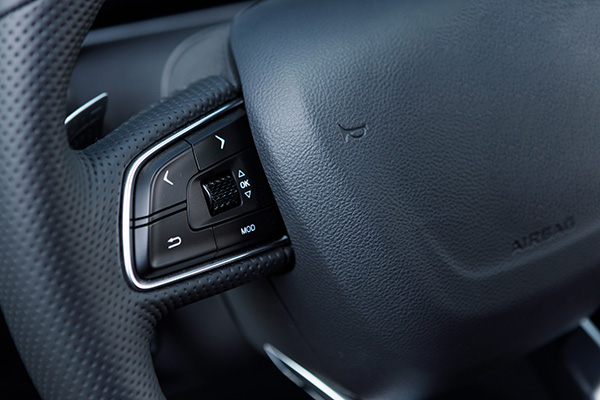
Cruise control is a convenient feature that helps reduce driver fatigue, especially on long highway drives. However, while it’s designed to improve comfort and fuel efficiency, it’s not without its drawbacks. There are times when relying on cruise control can actually compromise your safety—and knowing when to avoid it is just as important as knowing how to use it.
Slippery Roads Make Cruise Control Risky
One of the most dangerous times to use cruise control is during poor weather conditions. Rain, snow, and ice reduce tire traction, making it easier for your car to hydroplane or skid. If you’re using cruise control when this happens, your vehicle might try to maintain speed even as traction is lost, which can lead to loss of control. In fact, many modern vehicle manuals specifically advise against using cruise control in wet or icy conditions for this very reason.
The safest approach? Always turn off cruise control when roads are slick, or visibility is reduced. Keeping full manual control gives you faster reaction time and a better grip on the situation.
Unexpected Traffic Can Catch You Off Guard
Cruise control is ideal for open highways with consistent traffic flow, but it becomes a liability in congested areas. If traffic suddenly slows or stops, the delay between you noticing the change and disengaging cruise control could be critical. While adaptive cruise control systems are getting better at responding to changes in traffic speed, older or basic systems still require manual braking.
Always stay alert and be ready to cancel cruise control manually when traffic becomes unpredictable. It’s better to stay actively engaged than to be caught off guard by sudden slowdowns.
Hilly Terrain Can Overwork Your Brakes
Many drivers don’t realize that cruise control can strain their braking systems on hilly roads. When descending a steep incline, the system tries to maintain your set speed, sometimes downshifting or even applying the brakes frequently. This can lead to brake overheating or wear if you're not careful. On uphill stretches, cruise control might accelerate more aggressively than a driver would normally do, using more fuel and potentially stressing the engine.
In these situations, it’s often smarter to manage your speed manually, using engine braking on downhill slopes and adjusting your pace naturally on climbs.
Driver Distraction and Complacency
Ironically, one of cruise control’s main benefits—reducing driver workload—can also lead to one of its biggest drawbacks: reduced attention. With less active engagement, some drivers become complacent or distracted, especially on long drives. This mental “autopilot” state reduces situational awareness, making it harder to respond quickly to changing road conditions.
If you feel your mind drifting or notice you’re not as alert while using cruise control, it’s a good idea to take a break or resume manual driving to stay focused.
Mechanical Failures Can Create Sudden Risks
While rare, cruise control malfunctions can happen. A stuck throttle, faulty switch, or electrical issue could prevent the system from disengaging properly. Newer vehicles include fail-safes and override systems, but older models may not. If you ever suspect your cruise control isn’t functioning properly, it’s best to have it checked before using it again.
Being familiar with how to quickly disengage the system—whether by tapping the brake, clutch, or a designated cancel button—is essential. If something doesn’t feel right, don’t take chances.
Know When to Use It Safely
Cruise control isn’t inherently unsafe—it’s a helpful tool when used under the right conditions. On dry, open highways with steady traffic and good visibility, it can reduce fatigue and help maintain consistent speed. But understanding when it’s best to avoid cruise control is key to safe driving.
As a rule of thumb, avoid using cruise control:
- In rain, snow, or icy conditions
- In heavy traffic or stop-and-go situations
- On hilly or winding roads
- When you're feeling drowsy or distracted
Staying actively engaged with your vehicle and road conditions is always the safest choice.
Ocala Auto Repair – We Care About Your Safety
Concerned about how your cruise control system is performing? Whether you’re driving through central Florida highways or navigating daily commutes, our expert technicians at Ocala Auto Repair in Ocala, FL, can inspect and service your cruise control system for safety and peace of mind. Don’t wait for a malfunction to cause a problem—schedule your checkup with us today!